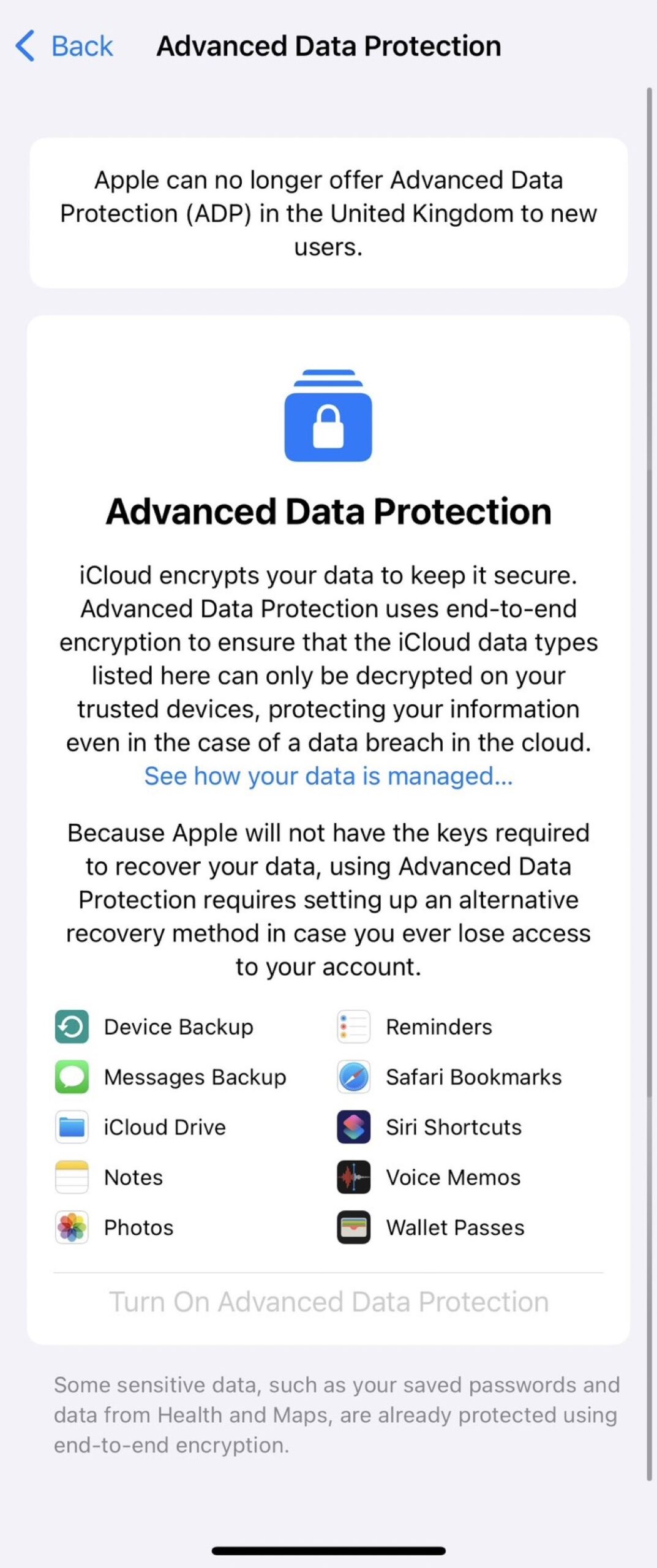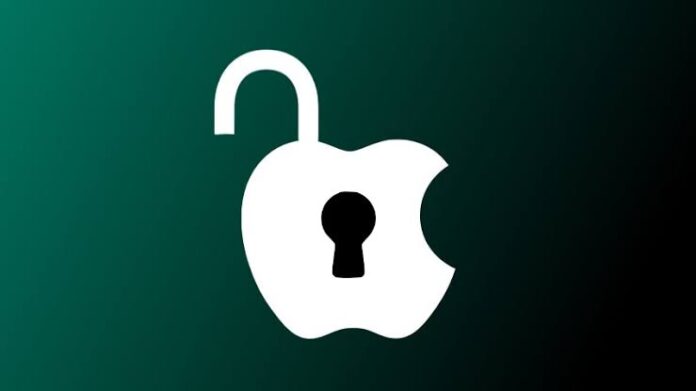The UK government has forced Apple into a disturbing decision: disable end-to-end encryption for iCloud in the UK, effectively stripping British users of one of the most powerful privacy protections available. This comes after Apple refused to implement a government-mandated backdoor that would have given authorities access to user data—even data Apple itself cannot access.
What Happened?
Apple had planned to roll out its Advanced Data Protection (ADP) feature globally, allowing users to enable end-to-end encryption for iCloud backups, photos, messages, and other sensitive data. This means that only the user holds the keys, preventing even Apple from accessing their information.
However, the UK’s Investigatory Powers Act (IPA) of 2016, sometimes called the Snooper’s Charter, gives the government the ability to demand access to encrypted data. When Apple refused to comply with these demands, instead of fighting an uphill battle against UK legislation, they took a different route: disabling ADP entirely for UK customers.
The Implications

British iPhone users can no longer encrypt their iCloud backups. While Apple’s iMessage remains end-to-end encrypted, any backups stored on iCloud are now accessible to the company—and, by extension, law enforcement and intelligence agencies upon request. This weakens privacy and security for millions of UK residents, leaving them more vulnerable to cyber threats, government overreach, and potential abuse.
What About Android?
The obvious question is: Did Google cave to the same pressure?
Google’s RCS (Rich Communication Services) messages are end-to-end encrypted when sent between Google Messages users, and backups for Android devices can be encrypted using the user’s PIN or password. However, Google does not provide the same kind of default cloud backup encryption that Apple attempted with ADP. This means that Android users were already in a weaker position when it came to cloud storage security, but they may not have had to deal with the same UK government interference.
It is currently unclear whether Google was approached with the same demand and, if so, how they responded. If Google has not made any concessions, then Android users in the UK might have better privacy protections than iPhone users—an ironic twist, considering Apple’s historic stance as the more privacy-conscious platform.
Should UK Users Switch to Android?
If Google has managed to retain encryption without caving to the UK’s demands, this would make Android the preferable platform for privacy-conscious users in Britain. However, given the UK’s aggressive stance on surveillance, it’s possible that similar pressures could be applied to Google in the near future.
For now, British iPhone users concerned about privacy may want to reconsider their reliance on iCloud backups or look into alternative encryption solutions outside Apple’s ecosystem.
In conclusion
The UK government’s push for backdoor access is a chilling reminder of the constant battle between privacy and state surveillance. Apple’s refusal to comply with backdoor demands is commendable, but their decision to disable encryption altogether leaves UK users with fewer protections. If Google has resisted similar pressure, it may emerge as the preferred option for those prioritizing security.
The big question remains: Will other tech companies follow Apple’s lead, or will they fight back against the UK’s surveillance overreach even though Facebook had succumb to the pressure in the past ?













































